Federal Election Campaign Act
Modern campaign finance law stems from the Federal Election Campaign Act (FECA), first enacted in 1971 and amended in 1974, 1976, and 1979. FECA mandated reporting requirements similar to those in place today, such as quarterly disclosure of a political committee’s contributions and spending. FECA also limited spending on media advertisements, though that restriction was later declared unconstitutional. The law provided a framework for the creation of political action committees.
Source: Congressional Research Service
Federal Election Campaign Act, 1974 amendments
The 1974 amendments, passed in the wake of the Watergate scandal, placed limits on contributions and spending by campaigns. Congress also established the Federal Election Commission, charging it with enforcing the law. The legislation put in place a system for disclosure and created a public financing system for presidential candidates in the form of matching funds for presidential primary candidates.
Source: Congressional Research Service
Buckley v. Valeo
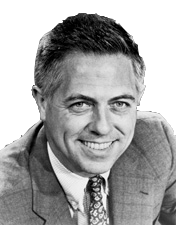
This landmark case created the legal foundation for the Citizens United v. FEC decision issued 34 years later. The Supreme Court upheld contribution limits. However, it overturned spending limits (except for publicly financed presidential candidates). The decision said such restrictions “limit political expression at the core of our electoral process and of the First Amendment freedoms." The court upheld disclosure and recordkeeping requirements. In addition to striking down limits on candidate expenditures, the decision also invalidated limits on independent spending (spending not coordinated with a candidate) and on expenditures of candidates’ personal funds.
Source: FEC
Appellants:
- James L. Buckley — U.S. Senator from New York, elected in 1970 as a Conservative Party candidate
- Eugene McCarthy — Presidential candidate who challenged Hubert Humphrey for the 1968 Democratic presidential nomination on anti-war platform
- Committee for a Constitutional Presidency - McCarthy '76 — McCarthy’s campaign committee
- Stewart Mott — Prominent anti-war donor
- New York Civil Liberties Union
- Republican Party of Mississippi
- Libertarian Party
- Conservative Party of New York
- Human Events — Weekly newspaper
- William Steiger — Republican congressman from Wisconsin
- The American Conservative Union
- The Conservative Victory Fund
Attorneys for the appellants:
- Ralph K. Winter, Jr.
- Joel M. Gora
- Brice M. Claggett
Appellees:
- Secretary of the Senate Francis Valeo
- Clerk of the U.S. House of Representatives
- Comptroller General
- Attorney General
- Federal Election Commission
Attorneys for the appellees:
- Daniel M. Friedman
- Archibald Cox
- Lloyd M. Cutler
- Ralph S. Spritzer
Sources: Oyez, Encyclopedia.com
Federal Election Campaign Act, 1976 amendments
Congress responded to Buckley through the 1976 FECA amendments. The legislation reconstituted the Federal Election Commission (FEC), established new contribution limits, repealed expenditure limits (except for candidates who accepted public funding) and changed the way FEC commissioners are appointed.
Source: Congressional Research Service
Federal Election Campaign Act, 1979 amendments
The 1979 amendments simplified reporting requirements for some political committees and individuals and increased the public funding grants for presidential nominating conventions.
Source: Congressional Research Service
Bipartisan Campaign Reform Act of 2002
The law, commonly known as the McCain-Feingold Act, or BCRA, restricted so-called “soft money” donations — unlimited contributions to party organizations, often by labor unions and corporations, used for nebulous, unregulated “party building” activities — and tried to separate issue advocacy from candidate advocacy. The Act regulated issue advocacy by creating a new term in federal election law, “electioneering communications”— political advertisements that “refer” to a clearly identified federal candidate and are broadcast within 30 days of a primary or 60 days of a general election. Generally, the act prohibited unions and certain corporations from spending treasury funds for such “electioneering communications.”
Sources: FEC, Congressional Research Service
McConnell et al v. FEC et al

BCRA faced major challenges from a host of litigants. McConnell v. FEC consolidated twelve lawsuits involving more than 80 plaintiffs. Mitch McConnell, a Republican U.S. senator from Kentucky and the current majority leader, has long been in favor of liberalizing restrictions on campaign contributions. The Supreme Court’s decision was considered a win for campaign reformers. A 5-to-4 majority upheld most of the law, including key provisions relating to political party soft money and electioneering communications. The court, however, invalidated its prohibition on contributions from minors age 17 and under.
The suits joined together under McConnell were:
- No. 02-1674, McConnell et al. v. Federal Election Commission et al.
- No. 02-1675, National Rifle Association et al. v. Federal Election Commission et al.
- No. 02-1676, Federal Election Commission et al. v. McConnell, United States Senator, et al.
- No. 02-1702, McCain, United States Senator, et al. v. McConnell, United States Senator,
- No. 02-1727, Republican National Committee et al. v. Federal Election Commission et al.
- No. 02-1733, National Right to Life Committee, Inc., et al. v. Federal Election Commission et al.
- No. 02-1734, American Civil Liberties Union v. Federal Election Commission et al.
- No. 02-1740, Adams et al. v. Federal Election Commission et al.
- No. 02-1747, Paul, United States Congressman, et al. v. Federal Election Commission et al.
- No. 02-1753, California Democratic Party et al. v. Federal Election Commission et al.
- No. 02-1755, American Federation of Labor and Congress of Industrial Organizations et al. v. Federal Election Commission et al.
- No. 02-1756, Chamber of Commerce of the United States et al. v. Federal Election Commission et al.
Attorneys for the appellants:
- Kenneth W. Starr
- Floyd Abrams
- Bobby R. Burchfield
- Laurence E. Gold
- Jay Alan Sekulow
Attorneys for the appellees:
- Theodore B. Olson, Solicitor General
- Paul D. Clement, Deputy Solicitor General
- Seth P. Waxman, argued the cause for the intervenor-defendants
Source: Oyez
Amicus/intervenor filings:
- For a list of amicus and intervenor filings, visit the Campaign Legal Center’s resource here.
Source: Campaign Legal Center
FEC v. Wisconsin Right to Life, Inc.

In a significant setback for supporters of the Bipartisan Campaign Reform Act, the Supreme Court in a 5-4 decision concluded that restrictions on “electioneering” communications went too far. An electioneering communication is defined as a broadcast ad that is aired within 30 days of a primary or 60 days of a general election; names a candidate; and is targeted at voters. The law said corporate and labor money cannot be used to fund such advertisements. The court ruled that the provision was unconstitutional when it came to advertisements that did not expressly advocate for the election or defeat of a candidate.
Sources: FEC, Campaign Legal Center
Attorneys for appellant:
- Paul Clement, Solicitor General
- Gregory G. Garre, Deputy Solicitor General
- Thomasenia Duncan, FEC Acting General Counsel
Attorneys for appellees:
- James Bopp, Jr.
- Richard E. Coleson
- Jeffrey P. Gallant
- Raeanna S. Moore
- M. Miller Baker
- Michael S. Nadel
Source: Oyez
Amicus/intervenor filings:
- For a list of amicus and intervenor filings, visit the Campaign Legal Center’s resource here.
Source: Campaign Legal Center
Citizens United v. FEC

In a case that continues to have an enormous impact on elections at all levels of government, the court reversed decades of decisions by allowing corporate and union dollars to pay for ads and other campaign materials that urge voters to vote for or against a candidate for office. The 5-4 decision affected what are known as “independent expenditures.” Such funds are used by an outside party to pay for materials that favor or oppose a candidate, but the spending must be “independent” — the outside party isn’t allowed to coordinate it with the candidate. The decision led to the creation of super PACs — which accept unlimited donations and use the funds mostly on political advertising — and “dark money” organizations, nonprofits that do essentially the same thing but are not required to reveal their donors.
Source: Center for Public Integrity
Attorneys for appellant:
- Theodore B. Olson
- Floyd Abrams, on behalf of Senator Mitch McConnell, as amicus curiae, in support of the appellant
Attorneys for appellees:
- Elena Kagan, Solicitor General
- Seth P. Waxman on behalf of Sens. John McCain et al. as amici curiae in support of the appellee
Source: Oyez
Amicus/intervenor filings:
- For a list of amicus and intervenor filings, visit SCOTUSblog’s resource here.
Sources: Campaign Legal Center, SCOTUSblog
SpeechNow.org et. al. v. FEC

While Citizens United set the stage for super PACs, the SpeechNow case, argued in the U.S. Court of Appeals for the D.C. Circuit, made them official. The decision struck down federal contribution limits to independent expenditure committees. It found that the high court’s analysis in Citizens United required the lower court to conclude that “the government has no anti-corruption interest in limiting contributions to an independent expenditure group.” The court, however, upheld the political committee disclosure requirements, so the donors to super PACs must be reported.
Source: FEC
Attorneys for the appellants:
- Steven M. Simpson
- William H. Mellor
- Robert W. Gall
- Robert P. Frommer
- Paul M. Sherman
- Stephen M. Hoersting
- Heidi K. Abegg and Alan P. Dye were on the briefs for amici curiae Alliance for Justice, et al. in support of appellants
Attorneys for the appellees:
- David B. Kolker, Associate General Counsel, FEC
- Vivien Clair, Attorney
- Joseph G. Hebert, Donald J. Simon, Scott L. Nelson, Fred Wertheimer were on the briefs for amici curiae Campaign Legal Center and Democracy 21
- Howard R. Rubin was on the briefs for amici curiae The Brennan Center for Justice and Professor Richard Briffault in support of appellee
Source: Justia
Amicus/intervenor filings:
- For a list of amicus and intervenor filings, visit the Campaign Legal Center’s resource.
Sources: Campaign Legal Center, SCOTUSblog, FEC, The Brennan Center
McCutcheon, Republican National Committee v. FEC
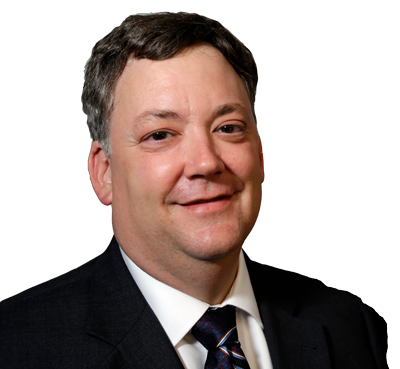
The McCutcheon decision went after “aggregate” limits. Joined by the Republican National Committee, Shaun McCutcheon sued to challenge the maximum $74,600 allowed to be spent by donors on party committees and the maximum $48,600 that could be spent on contributions to candidates. On April 2, 2014, the Supreme Court struck down those limits. The decision led to single donors spending enormous amounts on joint fundraising committees.
Source: Campaign Legal Center
Attorneys for McCutcheon:
- Michael T. Morley
- Dan Backer
- Paul Henry Jossey
- Jerad Wayne Najvar
Attorneys for the Republican National Committee:
- James Bopp, Jr.
- Richard E. Coleson
- Anita Y. Woudenberg
- Stephen M. Hoersting
Attorneys for the appellee:
- Donald B. Verrilli, Jr., Solicitor General
- Lisa J. Stevenson, Deputy General Counsel, FEC
Source: Oyez
Amicus/intervenor filings:
- For a list of amicus and intervenor filings, visit SCOTUSblog’s resource here.
Sources: SCOTUSblog, Campaign Legal Center
James Buckley

James Buckley was elected to the U.S. Senate in 1970, running as a Conservative Party candidate from New York. Buckley wrote he feared the new Federal Election Campaign Act and amendments of 1974 would make it harder for independents and third-party candidates like him to win office. So he joined with former presidential contender Sen. Eugene McCarthy, D-Minn., as well as liberal mega-donor Stewart Mott and conservative groups to challenge the law.
Thus was the seminal U.S. Supreme Court case on campaign finance, Buckley v. Valeo, was set in motion.
The Supreme Court’s decision upheld most of the law, but threw out a limit on how much a candidate or party or committee could spend on elections, finding political spending was a form of free speech. This point, decades later, would become central to the Supreme Court’s decision in Citizens United v. FEC.
Now 94 years old, the retired judge for the U.S. Court of Appeals for the D.C. Circuit still hopes to see contribution limits and reporting requirements eliminated. “Only then will the Buckley v. Valeo plaintiffs be able to claim a total victory,” he wrote in an essayfor a 2016 Brooklyn Law School symposium commemorating the 40th anniversary of the case.
Litigant:
- Buckley v. Valeo
U.S. Sen. Mitch McConnell, R-Ky.

Current Senate Majority Leader Mitch McConnell, R-Ky., has been a staunch opponent of campaign finance regulations for decades. The same day President George W. Bush signed the Bipartisan Campaign Reform Act of 2002 (BCRA), McConnell filed a lawsuit challenging its constitutionality. The D.C. District Court consolidated his case with 11 other lawsuits consisting of more than 80 plaintiffs to form McConnell v. FEC.
McConnell aligned with the conservative National Rifle Association, U.S. Chamber of Commerce and National Right to Life Committee on one end, and the American Civil Liberties Union and labor union AFL-CIO on the other. The Supreme Court by a 5-4 majority upheld most of BCRA’s main components, including provisions dealing with soft money and electioneering, though did strike down some minor aspects of the law.
McConnell has also filed amicus briefs in several subsequent campaign finance cases: supporting Wisconsin Right to Life in the anti-abortion group’s 2007 Supreme Court case, which ruled certain political ad laws went too far; supporting Citizens United in the nonprofit’s 2010 case that allowed corporate and union funds to pay for political ads independent of campaigns; and supporting megadonor Shaun McCutcheon in his 2014 Supreme Court case that eliminated federal aggregate contribution limits.
Litigant:
- McConnell v. FEC
Amicus:
- FEC v. Wisconsin Right to Life
- Citizens United v. FEC
- McCutcheon et al v. FEC
Wisconsin Right to Life, Inc.

Wisconsin Right to Life is a nonprofit anti-abortion group. The group ran ads urging viewers to call Wisconsin Democratic Sens. Russ Feingold and Herb Kohl and tell them to oppose filibustering President Bush’s judicial nominees. The ads could not be aired so close to an election according to the Bipartisan Campaign Reform Act, so the group challenged the law, and the Supreme Court ruled in its favor in 2007 in FEC v. Wisconsin Right to Life.
In a 5-4 decision, the court found unconstitutional the ban on corporations funding electioneering communications, or ads close to an election that mention a candidate. The provision went too far in restricting ads that did not expressly advocate for the election or defeat of a candidate, the court said.
Wisconsin Right to Life has also sued to overturn state-level campaign finance restrictions in Wisconsin. In 2011 and 2014, the Court of Appeals for the 7th Circuit ruled Wisconsin's aggregate contribution limits and corporate spending ban were unconstitutional, striking them down as a result of challenges brought by Wisconsin Right to Life.
The group’s 2015 tax filing, the latest available, showed almost $218,000 in revenue, down $139,000 from the previous year. The 501(c)(4) nonprofit grew out of a committee formed in 1967 by Milwaukee’s Roman Catholic Archbishop William E. Cousins.
Backers:
The group is not required to release its donors. But Citizens for a Strong America, which has ties to the Wisconsin Club for Growth, gave the nonprofit $347,000 in 2011, according to the Center for Responsive Politics.
Litigant:
- FEC v. Wisconsin Right to Life
Citizens United

The conservative political nonprofit created a documentary hostile to presidential candidate Hillary Clinton that it wanted to promote just before the 2008 Democratic primaries. Federal law prohibited broadcast ads mentioning a candidate 30 days before a primary election or 60 days before a general election, so the group challenged the law.
At the Supreme Court, a 5-4 decision reversed years of campaign finance precedent and unleashed billions of dollars into the political process. The court ruled that corporations and unions could spend unlimited amounts on ads as long as they did not coordinate directly with campaigns. This decision, together with SpeechNow.org v. FEC, led to the creation of super PACs. Super PACs spent almost $1.1 billion in the 2016 federal elections according to data from the Center for Responsive Politics. The lawyer who crafted the case, James Bopp, had brought other cases across the country, laying the legal groundwork for a challenge on the scale of Citizens United.
David Bossie, the president of Citizens United since 2001, ran an anti-Hillary Clinton super PAC, Defeat Crooked Hillary in 2016. He then served as President Trump’s deputy campaign manager and the transition team’s deputy executive director. In early 2017, Fox News Channel signed Bossie as a contributor on Fox News and Fox Business.
Before Citizens United’s pivotal case, the group wrote an amicus brief supporting Wisconsin Right to Life in the anti-abortion group’s 2007 Supreme Court case, which loosened political ad restrictions. Citizens United also challenged the Bipartisan Campaign Reform Act with Ron Paul, in a case that was consolidated in McConnell v. FEC.
The nonprofit is currently challenging New York donor disclosure laws in the U.S. Court of Appeals for the 2nd Circuit. A district court dismissed the complaint in August 2016, but Citizens United appealed. The group’s latest tax form available reported about $7.6 million in revenue in 2015.
Litigant:
- Citizens United v. FEC
- McConnell v. FEC
Amicus:
- FEC v. Wisconsin Right to Life
SpeechNow.org

David Keating, then-executive director of the conservative Club for Growth, founded SpeechNow.org to “call out” politicians he saw as trampling on the public’s First Amendment rights in the wake of the 2002 McCain-Feingold campaign finance legislation, he said.
But the political committee immediately “found its efforts hampered” by campaign finance law that capped contributions, Keating said. The hundreds of thousands of dollars potential donors had pledged would be illegal. So in February 2008, SpeechNow.org sued the Federal Election Commission, arguing large donations to fund independent political activity are protected under the First Amendment. The District of Columbia Circuit Court decision in the SpeechNow case — predicated on the Supreme Court’s decision in Citizens United v. FEC — led to the creation of super PACs, vehicles that can accept and spend unlimited amounts from people, corporations and labor unions.
SpeechNow.org is currently dormant, though Keating said he plans to keep the group alive. Keating is now the president of the conservative Institute for Free Speech, formerly known as the Center for Competitive Politics, a group that is currently bringing at least five cases dealing with First Amendment infringement.
“Free speech is winning on many fronts and I think the courts and lawmakers are going to continue to lift restrictions,” Keating said. “It’s a matter of recognizing the rights that we have.”
Litigant:
- SpeechNow.org et al v. FEC
Shaun McCutcheon

The Republican National Committee (RNC) was looking for the perfect plaintiff to knock down federal aggregate giving limits, and Shaun McCutcheon fit the mold. The Alabama Republican Party told McCutcheon, an engineering firm CEO, in 2012 that he was approaching the legal limit of federal candidates he was permitted to contribute to. So, McCutcheon filed a complaint with the Federal Election Commission with the help of election lawyer Dan Backer. The RNC took notice, and convinced him to join the committee’s lawsuit.
In McCutcheon et al. v. FEC, a 5-4 majority Supreme Court struck down the aggregate limits in April 2014, allowing donors to give to as many federal candidates and committees as they chose.
McCutcheon wrote a supportive op-ed in The Hill in March 2017 advocating for the confirmation of Neil Gorsuch to the Supreme Court. He chairs the Coolidge Reagan Foundation, a 501(c)(3) nonprofit focused on free speech issues that was founded by Backer. Its 2014 tax form, the latest available, reported the group had roughly $5,000 in assets. While McCutcheon doesn’t see himself as being a plaintiff again (“That was a huge undertaking!” he said), he plans to work with Coolidge Reagan on increasing contribution limits to political parties.
Litigant:
- McCutcheon et al v. FEC
National Rifle Association
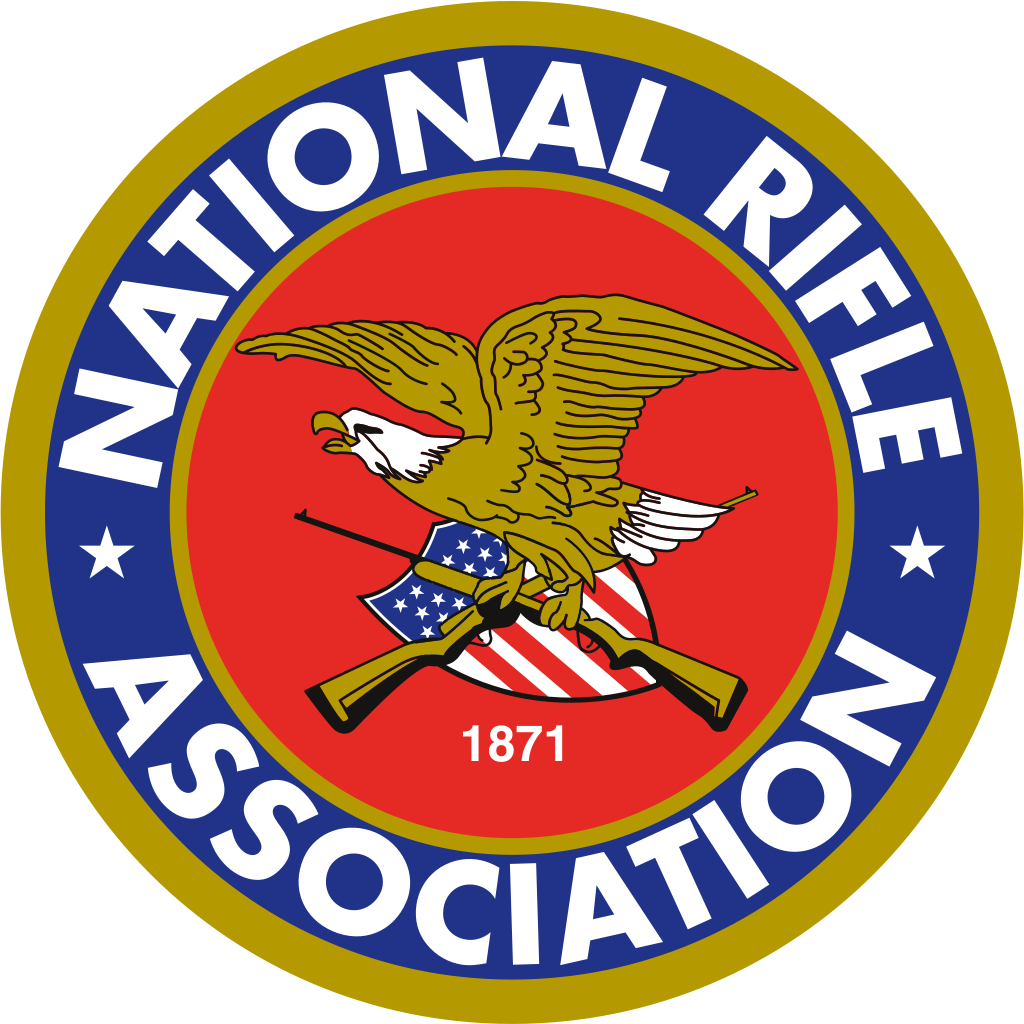
The best known and largest gun advocacy group in the U.S., the National Rifle Association (NRA) spends millions on elections supporting candidates who oppose strong gun control laws and blasting those who support gun control. They poured more than $50 million into the 2016 elections and backed many winning candidates, including President Donald Trump. A political powerhouse, they were among the plaintiffs whose suits were consolidated into McConnell v. FEC. The NRA focused its challenge on the Bipartisan Campaign Reform Act’s ban on corporations airing ads close to an election that refer to a candidate. The NRA also filed amicus briefs supporting both Citizens United and Wisconsin Right to Life in their respective Supreme Court cases.
Backers:
The NRA’s outside spending groups only partially disclose their donors to the FEC, according to the Center for Responsive Politics. According to their tax documents, the Koch brothers' nonprofit Freedom Partners Chamber of Commerce reported giving $4.9 million to the NRA in 2014 while Karl Rove's Crossroads GPS gave $125,000 the same year, according to data from the Center for Responsive Politics.
Litigant:
- McConnell v. FEC
Amicus:
- Citizens United v. FEC
- FEC v. Wisconsin Right to Life
Republican National Committee (RNC)
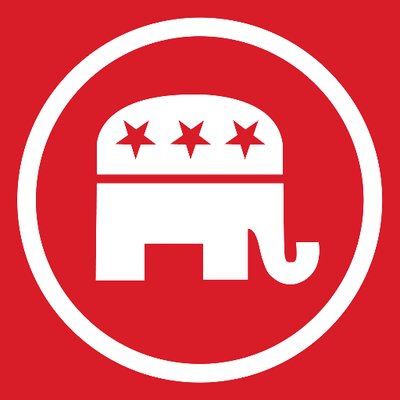
The Republican National Committee (RNC) helps develop the party’s platform, oversees the presidential nominating process and boosts Republican candidates through fundraising and messaging. The national party committee has consistently supported eliminating limits on contributions and, more recently, rules requiring donor disclosure. The party was a co-litigant with McCutcheon in a 2014 case that struck down federal aggregate giving limits in a 5-4 Supreme Court decision. They also appeared as a litigant in McConnell v. FEC, challenging a ban on soft money, among other aspects of the legislation.
Backers:
Chairman of oil refiner Western Refining Paul Foster and his wife, Juárez businesswoman Alejandra de la Vega Foster, each donated $668,000 to the RNC and its special accounts in the 2016 election cycle, the most of any donor. Charles Joyce, chairman of pipeline constructor Otis Eastern Service LLC, and Kenneth Griffin, founder and CEO of investment firm Citadel, gave $658,000 each, according to data from the Center for Responsive Politics.
Litigant:
- McConnell v. FEC
- McCutcheon et al v. FEC
National Right to Life Committee, Inc.
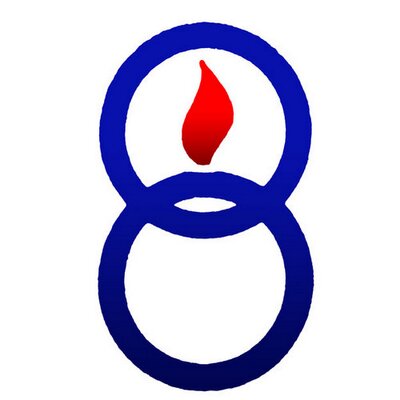
The nation’s oldest and largest anti-abortion organization runs ads and supports candidates whose positions align with the group’s. During the 2016 election, the group’s political committees largely supported Republicans Donald Trump, Sen. Marco Rubio of Florida and Sen. Richard Burr of North Carolina. The organization dedicates a section of its website to what it describes as “free speech issues,” and opposes legislation that requires donor reporting, such as the DISCLOSE Act. National Right to Life argued against the bans on soft money and electioneering communications in one of the lawsuits consolidated as part of the McConnell v. FEC case.
Backers:
While the organization is not required to report its donors, tax filings show backers to the National Right to Life Committee Educational Trust Fund, a nonprofit that transferred at least $483,000 to National Right to Life in 2014. From 2010 through 2014, the Tulsa Community Foundation gave at least $300,000, the National Christian Charitable Foundation donated at least $243,000, the Community Foundation donated $10,000 and the Knights of Columbus gave $10,000, according to the Center for Public Integrity’s Nonprofit Network tool.
Litigant:
- McConnell v. FEC
AFL-CIO
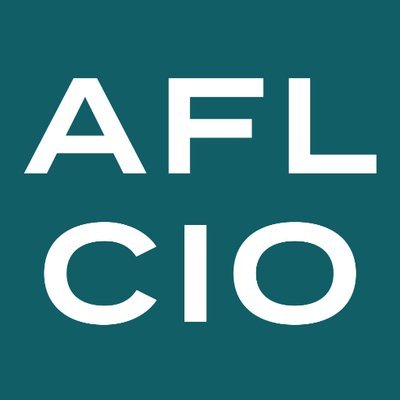
It is common knowledge, relatively speaking, that Citizens United opened the floodgates for corporate spending in elections, but less known that the ruling also covered spending by labor unions. The AFL-CIO, a coalition of 56 unions across the world, spent around $8.5 million in the 2016 cycle, supporting Democrats such as Hillary Clinton, and failed Senate hopefuls Ted Strickland of Ohio and Katie McGinty of Pennsylvania. The AFL-CIO opposed the ban on electioneering communications, and brought a suit consolidated into McConnell v. FEC. The AFL-CIO also submitted amicus briefs in Citizens United and Wisconsin Right to Life supporting challenges to the law.
Backers:
The AFL-CIO uses many outlets to influence politics, including a PAC, super PAC and nonprofit. According to the Center for Responsive Politics, the top donors to these entities in the 2016 cycle include Democrat-backing super PAC For Our Future ($12 million), American Federation of Teachers ($2.6 million) and anti-Trump super PAC Unite Here ($2.3 million).
Litigant:
- McConnell v. FEC
Amicus:
- FEC v. Wisconsin Right to Life
- Citizens United v. FEC
U.S. Chamber of Commerce
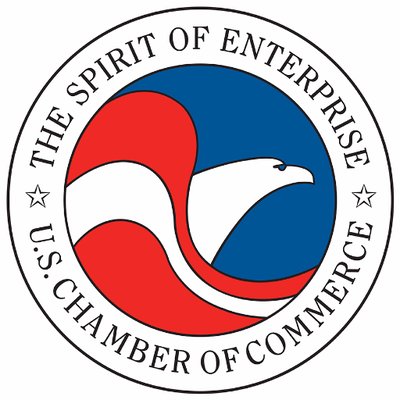
The nation’s largest business trade association has long advocated for secrecy in campaign contributions. The organization is a lobbying behemoth that spends tens of millions of dollars each year advocating for business-friendly policies. The Chamber is also a big spender in federal elections. In the 2016 cycle alone the group spent more than $29 million, all to help Republican candidates. The trade association filed a suit that was consolidated into McConnell v. FEC challenging the Bipartisan Campaign Reform Act, and filed amicus briefs in the Citizens United and Wisconsin Right to Life cases supporting challenges to the law.
Backers:
Being a 501(c)(6) nonprofit, the U.S. Chamber isn’t required to disclose its donors. The following groups reported giving grants to the business league: In 2014, Karl Rove's Crossroads GPS gave $5.25 million, the Koch brothers' Freedom Partners Chamber of Commerce gave $2 million and an anti-Alison Grimes super PAC, Kentucky Opportunity Coalition, gave $1 million. In 2013, Freedom Partners gave another $500,000, the Motion Picture Association of America gave $125,000, while PhRMA donated $50,000, according to data from the Center for Responsive Politics.
Litigant:
- McConnell v. FEC
Amicus:
- FEC v. Wisconsin Right to Life
- Citizens United v. FEC
California Democratic Party
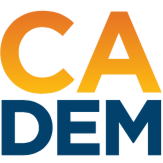
The California Democratic Party, along with the state’s Republican Party, argued the Bipartisan Campaign Reform Act (BCRA) limits state and local parties from completing their basic functions, like voter registration, and promoting party ideology. The case was consolidated into McConnell v. FEC. “Ultimately, it is clear that the BCRA will weaken the very structure of the parties,” the California parties argued. “By expanding the scope of the [Federal Election Campaign Act] to cover state and local activities already regulated, and specifically permitted, by the State of California, the BCRA impermissibly intrudes upon areas reserved to the State under the Tenth Amendment to the United States Constitution.” In 2000, California voters passed a referendum that among other things allowed political parties to raise and spend more money in state and local elections. BCRA, the California Democratic Party argued, fundamentally went against the voters’ intent.
Backers:
According to data from the National Institute on Money in State Politics, the California Democrats' top donors during the 2016 election cycle include the California Association of Hospitals & Health Systems ($2.1 million), California Association of Realtors ($940,000) and AT&T ($654,000). The largest donation from an individual came from billionaire environmentalist Tom Steyer, with $500,000.
Litigant:
- McConnell v. FEC
Ron Paul
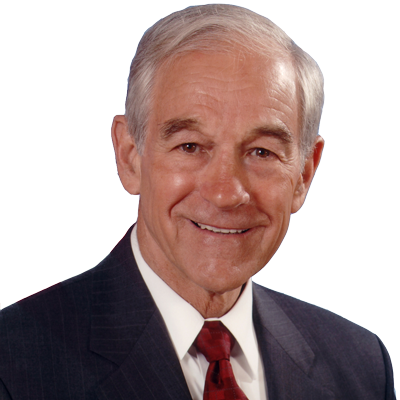
While a Republican U.S. representative from Texas, prominent libertarian Ron Paul sued the FEC with Gun Owners for America, Inc., Citizens United and an assortment of other groups, arguing that the Bipartisan Campaign Reform Act (BCRA) imposes large burdens for candidates and infringed on his right to freedom of the press. His case was combined with 11 other suits to form McConnell v. FEC. He opposes campaign finance reform, voted against measures to ban soft money, tax-funded elections and increased lobbyist disclosures. Paul ran for president in 1988, 2008 and 2012.
Backers:
PayPal founder Peter Thiel contributed more than $2.7 million to super PACs supporting Paul during the 2012 election cycle.
Litigant:
- McConnell v. FEC
American Civil Liberties Union

The American Civil Liberties Union (ACLU) is a well-known advocate for LGBT rights, criminal justice reform and reproductive rights. The group’s stance on campaign finance cases, while consistent over the years, has drawn less attention. In addition to being a co-plaintiff in the McConnell case, where it argued against the ban on electioneering communications, the ACLU filed amicus briefs in both Wisconsin Right to Life and Citizens United,siding with the nonprofits challenging campaign finance regulations. Campaign finance has proved divisive: Former leaders of the ACLU filed briefs in both McConnell and Citizens United saying the organization was wrong to challenge the restrictions. The ACLU is made up of a 501(c)(3) foundation and (c)(4) social welfare organization, and does not disclose its donors.
Backers:
The ACLU does not report its donors, but using the tax documents of other organizations, the Center for Public Integrity pieced together some of its major backers. From 1998-2016, George Soros' Open Society Institute gave at least $19.8 million, the Sandler Foundation at least $17.9 million and the Robert W. Wilson Charitable Trust at least $12.4 million to the ACLU Foundation.
Litigant:
- McConnell v. FEC
Amicus:
- FEC v. Wisconsin Right to Life
- Citizens United v. FEC
James Bopp Jr.
Backers:
Funding for Bopp comes in part from the James Madison Center for Free Speech, a nonprofit organization he co-founded in 1997, as reported by Slate. The organization helps fund Bopp’s litigation “by channeling tax-exempt, mostly anonymous donations to his for-profit law firm,” the online newsmagazine reports. Among the nonprofit donors is Alliance Defending Freedom, which gave the nonprofit $66,225. That group is in turn funded by more than $66 million from the National Christian Charitable Foundation, according to a Center search of tax records. The James Madison Center for Free Speech also received $25,000 in 2011 from the Mercer Family Foundation, the foundation of Republican mega-donor Robert Mercer.
Cato Institute
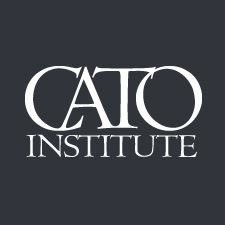
The Cato Institute is a free-market think tank dedicated to the principle of reducing the size of government. Previously known as the Charles Koch Foundation, it was relaunched by Edward Crane with $500,000 from industrialist and political donor Charles Koch in January of 1977. The institute has received considerable funds from the industrial giant since. The Koch brothers — Charles and David — have been demonized as major funders of so-called “dark money” political nonprofits made possible by the 2010 Citizens United v. FEC Supreme Court decision. Cato has intervened in nearly every major campaign finance case before the U.S. Supreme Court dating back to McConnell v. FEC. Meanwhile, nonprofit groups funded by the Koch empire have fought hard to keep the source of their donors secret.
Backers:
The Cato Institute does not disclose its donors. Major donors the Center for Public Integrity identified in tax records from 1998 to 2016 include Dunn’s Foundation for the Advancement of Right Thinking ($4.9 million), Claude R. Lambe Charitable Foundation ($2.8 million), Searle Freedom Trust ($2.3 million), Claws Foundation ($2.1 million) and the Lynde and Harry Bradley Foundation ($2 million.)
Amicus:
- McConnell v. FEC
- Wisconsin Right to Life v. FEC
- Citizens United v. FEC
- McCutcheon et al v. FEC
Institute for Justice
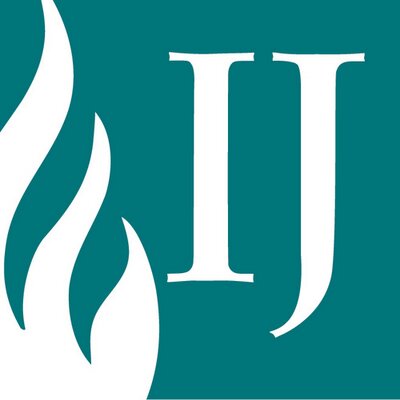
The Institute for Justice describes itself as “the National Law Firm for Liberty.” It “litigates to limit the size and scope of government power and to ensure that all Americans have the right to control their own destinies as free and responsible members of society,” according to the group’s website. It employs a staff of about 100 (including more than 30 attorneys) in Arlington, Virginia, and seven offices across the United States. Its 2018 budget is $25 million. William H. "Chip" Mellor and Clint Bolick co-founded the organization in 1991 with seed money from Charles Koch. Among their top issues is opposition to civil asset forfeiture by law enforcement. Similar to Cato, the organization has also intervened in nearly every campaign finance case of note since McConnell, according to Center for Public Integrity research.
Amicus:
- McConnell v. FEC
- Wisconsin Right to Life v. FEC
- Citizens United v. FEC
- McCutcheon et al v. FEC
Center for Competitive Politics
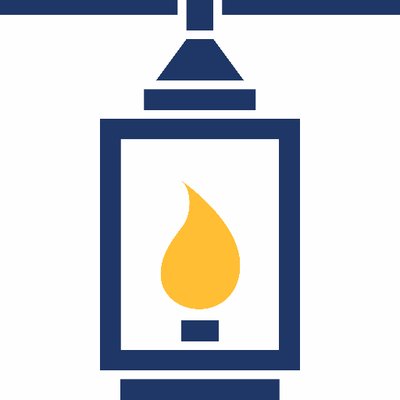
The Center for Competitive Politics, now called the Institute for Free Speech, describes itself as the “the nation’s largest organization dedicated solely to protecting First Amendment political speech rights.” It was founded in 2005 by Bradley Smith, former chairman of the Federal Election Commission. Smith is the chairman. The organization is a prolific litigator and advocates for limited regulation of money in politics. It fights regularly to preserve donor anonymity. Like Cato and the Institute for Justice, the Center has Koch connections. Its board members include Ed Crane, founder and president emeritus of the Cato Institute. It has also received funding from the Charles Koch Foundation.
Backers:
The Institute for Free Speech does not disclose its donors, and fights to keep donor information private. Large donors from 1998 to 2016 to the Institute for Free Speech include Donors Capital Fund ($5.4 million), Robert W. Wilson Charitable Trust ($1.4 million), Searle Freedom Trust ($725,000), Ed Uihlein Family Foundation ($511,000) and Lynde and Harry Bradley Foundation ($440,000), according to a Center for Public Integrity review of tax filings.
Amicus:
- Wisconsin Right to Life v. FEC
- Citizens United v. FEC
- McCutcheon et al v. FEC
Campaign Legal Center

The Campaign Legal Center was founded in 2002 by Trevor Potter, a former Republican chairman of the Federal Election Commission. Potter was also general counsel to the presidential campaigns of U.S. Sen. John McCain. The Campaign Legal Center is essentially a law firm that litigates in favor of restrictions on campaign spending and disclosure of contributions. The Center states its mission is to “improve our democracy and protect the fundamental right of all Americans to participate in the political process.” The Center is regularly quoted in the press (including by Center for Public Integrity) and is an active litigator in campaign finance cases. “We conceptualize and advise on drafting of laws, we fight for enforcement of the laws once passed and we defend these laws when challenged,” it writes on its website.
Backers:
The group list its backers on its website but not the amounts of the donations.
Amicus:
- Wisconsin Right to Life v. FEC
- Citizens United v. FEC
- SpeechNow.org v. FEC
- McCutcheon v. FEC
Democracy 21
Democracy 21 is a “nonprofit, nonpartisan organization dedicated to making democracy work for all Americans,” according to its website. The group was founded by Fred Wertheimer who also serves as president. Wertheimer, according to his online biography, “has spent more than four decades working on democracy and governance issues and is a recognized national leader and spokesman on money in politics issues, including campaign finance, ethics, lobbying and transparency reforms.”
Backers:
Democracy 21 discloses only the names of some of its foundation donors. A Center for Public Integrity analysis of tax records found large donations from 1998 to 2016 from the Joyce Foundation ($900,000), Rockefeller Brothers ($190,000) and Open Society Institute ($75,000).
Amicus:
- Citizens United v. FEC
- SpeechNow.org v. FEC
Brennan Center for Justice
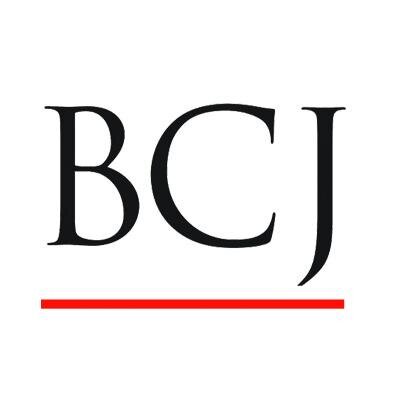
The Brennan Center for Justice at New York University School of Law is a nonpartisan law and policy institute that “seeks to improve our systems of democracy and justice” according to its website. In addition to money in politics issues, the center focuses closely on voting rights, reducing mass incarceration and protection of rights in the fight against terrorism. It litigates, advocates and functions as a think tank. Family members and former law clerks of U.S. Supreme Court Justice William J. Brennan founded the center in 1995. It is heavily supported by the Carnegie Corporation which has donated more than $3.6 million to it over the years.
Backers:
Most of the Brennan Center for Justice’s donors can be found in their annual publication, Democracy & Justice: Collected Writings. The 2016 edition of the publication lists the Laura and John Arnold Foundation, The JPB Foundation and Open Society Foundations as donors that have given $1 million or more. Open Society has given nearly $6 million to Brennan since 2002. It can also count the Rockefeller Brothers Fund Inc. and the Jennifer and Jonathan Allan Soros Foundation among its funders, totaling $880,000. The Craigslist Charitable Fund has also given the Brennan Center for Justice $375,900 since 2010.
Amicus:
- Citizens United v. FEC
- SpeechNow.org v. FEC
- McCutcheon et al v. FEC